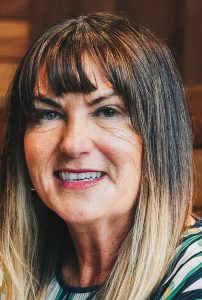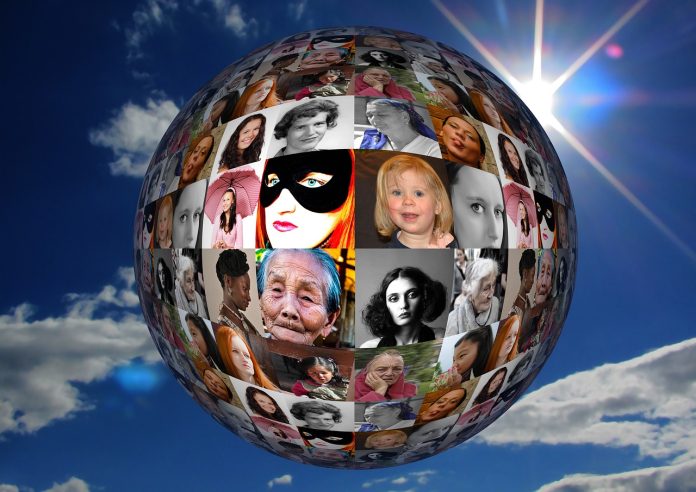With International Women’s Day coming on Friday, SME Magazine got in touch with leading female business executives to hear their thoughts and experiences around this year’s theme to “Inspire Inclusion”. Here is what they told us …
Deirdre Byrne, Head of UK & Ireland at Slack
 Having entered the industry around two decades ago when there were very few women leaders in tech, I’m a huge advocate for inclusion. Reflecting on my journey, I urge young women entering the sector to believe in their capabilities and to see no limits on what they can achieve in their careers. Many companies have recognised their responsibility to invest time and money into women’s learning, development, and workplace communities, and there is a brilliant opportunity to tap into these.
Having entered the industry around two decades ago when there were very few women leaders in tech, I’m a huge advocate for inclusion. Reflecting on my journey, I urge young women entering the sector to believe in their capabilities and to see no limits on what they can achieve in their careers. Many companies have recognised their responsibility to invest time and money into women’s learning, development, and workplace communities, and there is a brilliant opportunity to tap into these.
By investing in initiatives that support women’s wellbeing, organisations are fostering a more inclusive culture and actively creating environments where diverse teams can thrive. At Slack, we’ve created an “Ask Me Anything” channel with the leadership team and a “Talking Menopause” channel, which are great examples of how companies can facilitate connections, share experiences, and encourage allyship.
As we celebrate International Women’s Day with the theme ‘Inspire Inclusion’, and a time when there is a huge focus on the transformative power of AI on the workforce, let’s also recognise that investing in women isn’t just a commitment to equality; it’s a strategic decision to foster innovation, creativity and success. Let’s continue to back ourselves, take risks, and invest in creating a more equitable future for all.
Michelle Taite, CMO at Intuit Mailchimp
 This year’s International Women’s Day theme of ‘Inspire Inclusion’ resonates deeply with my core values. I strongly believe in the power of the collective, and that humility and curiosity can supercharge both ourselves and each other. Throughout my career, I’ve discovered that embracing humility and vulnerability transcends traditional expectations, turning them into a formidable strength. This journey of personal growth has allowed me to challenge and reshape stereotypes. It’s always my aim to craft genuine connections in my teams, advocating for a workplace where we lead with our whole selves, and in doing so, inspire others to embrace their own unique paths and strengths. This, to me, represents genuine inclusivity.
This year’s International Women’s Day theme of ‘Inspire Inclusion’ resonates deeply with my core values. I strongly believe in the power of the collective, and that humility and curiosity can supercharge both ourselves and each other. Throughout my career, I’ve discovered that embracing humility and vulnerability transcends traditional expectations, turning them into a formidable strength. This journey of personal growth has allowed me to challenge and reshape stereotypes. It’s always my aim to craft genuine connections in my teams, advocating for a workplace where we lead with our whole selves, and in doing so, inspire others to embrace their own unique paths and strengths. This, to me, represents genuine inclusivity.
Amber Omar, Senior People Partner at Volt
 As an HR professional, I play a vital role in driving the culture of inclusion. I recognise that diversity is our strength and creating a culture of allyship and support is imperative to our success. Inspiring inclusion to me means more than just promoting gender equality—it’s about embracing the richness of diversity in all its forms. Not only does this include inclusive recruitment and promotion strategies, assessing and addressing any biases in our practices—but it also involves creating safe spaces for open dialogue and feedback, where employees feel comfortable sharing their experiences and perspectives without fear of judgement.
As an HR professional, I play a vital role in driving the culture of inclusion. I recognise that diversity is our strength and creating a culture of allyship and support is imperative to our success. Inspiring inclusion to me means more than just promoting gender equality—it’s about embracing the richness of diversity in all its forms. Not only does this include inclusive recruitment and promotion strategies, assessing and addressing any biases in our practices—but it also involves creating safe spaces for open dialogue and feedback, where employees feel comfortable sharing their experiences and perspectives without fear of judgement.
This International Women’s Day, I hope that I can renew my commitment to inspiring inclusion in everything I do, both in and out of the workplace. Every day, I try to celebrate the unique contributions of women and underrepresented groups, and I encourage my wider team to work together to create a workplace where everyone has the opportunity to feel seen, heard and valued.
Sonja Gittens Ottley, Head, Diversity, Inclusion & Belonging at Asana
 As we celebrate International Women’s Day, and this year’s theme around ‘Inspire Inclusion’, there is an onus on leaders to create an environment that prioritises belonging and empowerment. Crucial to this is creating spaces where women can express themselves and be honest about changes they believe the business needs.
As we celebrate International Women’s Day, and this year’s theme around ‘Inspire Inclusion’, there is an onus on leaders to create an environment that prioritises belonging and empowerment. Crucial to this is creating spaces where women can express themselves and be honest about changes they believe the business needs.
Such changes might lie in workplace technology. Research from our Work Innovation Lab shows that women (71%) are more likely than men (64%) to say that collaboration tools are crucial to their work. While women may prefer such tools, it’s also true that they’re shouldering a disproportionate share of collaborative burdens. Meanwhile, our own findings showed that more women (67%) than men (62%) experience some level of digital exhaustion.
This highlights the need for businesses to deploy a data-driven tech stack that can provide a fully-connected, accurate, and up-to-date map of work within an organisation. Only then can businesses be sure that collaboration is happening effectively, and that technology is being used in a way that is supportive of women’s wellbeing and working styles.
Deann Evans, Managing Director EMEA at Shopify
 We must recognise the unfair barriers that place individuals at different starting lines, and take action to dismantle them. Choosing to work for and lead organizations that prioritize equitable opportunities is more than just a professional decision. Through championing inclusive practices, we at Shopify are actively trying to set new standards and demonstrate our commitment to creating a truly inclusive workplace.
We must recognise the unfair barriers that place individuals at different starting lines, and take action to dismantle them. Choosing to work for and lead organizations that prioritize equitable opportunities is more than just a professional decision. Through championing inclusive practices, we at Shopify are actively trying to set new standards and demonstrate our commitment to creating a truly inclusive workplace.
For instance, we have adopted a digital-first approach towards work to help drive inclusion. This approach, called ‘Digital by Design’, gives employees the flexibility to work almost anywhere in order to create a safe space for people to work around their needs outside of work and to level the playing field. Thanks to embracing digital solutions, barriers to inclusion – from geographical constraints to caregiving responsibilities – are broken down.
Let us all challenge elements of work which may be seen as the “status quo” to create initiatives and become agents of change – leveraging our positions, choices, and actions to inspire inclusion not only on International Women’s Day, but every day.
Clare Hickie, CTO, EMEA at Workday
 The theme for this year’s International Women Day is ‘Inspire Inclusion’, and that’s something all of us in the tech industry should be focused on. Having the right culture and policies is essential to achieving this, and that means having a leadership team that is open, transparent and encourages an innovative mindset.
The theme for this year’s International Women Day is ‘Inspire Inclusion’, and that’s something all of us in the tech industry should be focused on. Having the right culture and policies is essential to achieving this, and that means having a leadership team that is open, transparent and encourages an innovative mindset.
Technology also plays a critical role in enabling DEI, from measuring demographic data and empowering employee development and skills strategies, to enabling closer communication, transparency and collaboration. While humans need to remain the focus and the decision-makers, today AI can help gather data more effectively, which in turn can inform DEI approaches. The bottom line is that leaders need to inspire inclusion themselves, while providing teams with the tools to build a better workplace for everyone.
Marni Baker Stein, Chief Content Officer at Coursera
 The integration of AI into our professional lives is accelerating, and for women, this carries a particular threat of disruption. UK government research suggests that women are at a heightened risk of experiencing AI-related job automation, underlining the urgency for proactive upskilling to ensure their careers evolve alongside technology rather than being replaced by it.
The integration of AI into our professional lives is accelerating, and for women, this carries a particular threat of disruption. UK government research suggests that women are at a heightened risk of experiencing AI-related job automation, underlining the urgency for proactive upskilling to ensure their careers evolve alongside technology rather than being replaced by it.
In this area, there is more to be done. Currently, women are underrepresented in AI-related upskilling, with men being three times more likely to have enrolled in the most popular AI courses on Coursera’s platform. This disparity threatens to widen existing gender gaps in the workplace as AI literacy becomes increasingly necessary for career advancement.
However, there is reason for optimism. Female learners on Coursera are outpacing men in achieving skills proficiency – particularly in acquiring the skills that typically require the largest number of learning hours to attain. It is therefore clear that it is not ability preventing women from attaining the most important technical skills, but accessibility. The tens of millions of female learners on Coursera are continually proving that they will thrive when they are given access to skills development opportunities: we must ensure that institutions do more to direct their female talent towards learning pathways that empower them to acquire critical skills in AI and other high-demand tech domains.
Investing in women’s learning and development is imperative, but to fully foster equitable environments, modern workplaces must continue to adopt hybrid work frameworks, and flexible learning methods, offering upskilling opportunities that are tailored to women’s schedules. By creating this opportunity, we’ll be doing a better job of preparing the entire British workforce for the AI-driven workplace.
Dr Andrea Johnson, Chief Information Officer at Pipedrive
 Did you know that 39% of women believe they don’t have the same opportunities for advancement as their male counterparts? Data support this sentiment – McKinsey reports that for every 100 men promoted to an entry-level management position, only 87 women are promoted.
Did you know that 39% of women believe they don’t have the same opportunities for advancement as their male counterparts? Data support this sentiment – McKinsey reports that for every 100 men promoted to an entry-level management position, only 87 women are promoted.
I had a ‘eureka’ moment when I saw this. I realised that businesses are not doing enough to support women’s career pathways from the start, never mind down the line when some may have other responsibilities outside work. We can counter this bias through inspiring inclusion.
Business leaders must provide training to recognise and address bias within organisations, adopt an inclusive hiring process, and develop mentorship and sponsorship programmes to inspire a more diverse and efficient workforce. Through equitable compensation structures and enhanced avenues for professional advancement, companies can attract and support female leaders and harness the substantial positive contributions of women in the workplace.
Pratima Arora, Chief Product and Technology Officer at Chainalysis
 This year’s International Women’s Day theme of ‘Inspire Inclusion’ highlights that much more needs to be done to make careers in technology more inclusive. The landscape is not changing fast enough, especially in male-dominated industries like crypto where female representation in senior positions stands at 22.39% across the board, compared to 77.61% for men.
This year’s International Women’s Day theme of ‘Inspire Inclusion’ highlights that much more needs to be done to make careers in technology more inclusive. The landscape is not changing fast enough, especially in male-dominated industries like crypto where female representation in senior positions stands at 22.39% across the board, compared to 77.61% for men.
Women often feel as though they don’t belong and opt out of STEM-related professions early in life due to a lack of awareness of the opportunities available to them. This starts at an education level – when I was at university studying computer science, there were only three girls in my entire class of 50.
To build diversity in the industry, we must focus on creating an inclusive culture that nurtures female talent. Many of the barriers women face when it comes to pursuing a career in technology are due to lack of engagement, the confidence gap, outdated societal stereotypes, an intimidating male-dominated culture, and a lack of role models. We need to be role models and mentors for the next generation to inspire them and demonstrate what they can achieve. Industry events and recruiting conferences are a great opportunity to champion underrepresented talent to break these norms and highlight the various career paths for them within the industry. We also need more advocates, and it doesn’t just have to be women advocating for women.
Meri Williams CTO at Pleo
 Diversity is about having a wide range of people from different demographics, while inclusion is about enabling all those people to be themselves and become successful in a particular organisation. In other words, diversity is being invited to the party, while inclusion is being asked to dance.
Diversity is about having a wide range of people from different demographics, while inclusion is about enabling all those people to be themselves and become successful in a particular organisation. In other words, diversity is being invited to the party, while inclusion is being asked to dance.
This year, the theme of International Women’s Day is ‘inspire inclusion’. Real commitment to diversity and inclusion starts with recruitment and hiring. Therefore, companies have a responsibility to train HR managers and recruiters in inclusive practices early on. But this is not a box-ticking exercise. It’s the responsibility to foster an environment where every voice is heard, valued, and empowered to thrive because, ultimately, the true measure of success lies not in numerical quotas but in the authentic embrace of diversity as a way for collective growth and innovation.
Beyond hiring, leaders should then look to create support structures for employees from underrepresented groups – such as Employee Resource Groups (ERGs). This can ensure that your people are able to thrive and their whole selves to work. In short, it helps their diversity become a feature, rather than a bug. For the benefit of the organisation, but most importantly for them.
Violeta Martin, VP Commercial Sales EMEA at DocuSign
 Despite generally doing better in education, women are less likely to progress in the workplace. This shows that despite being qualified for roles, systemic barriers still exist that prevent many women from progressing in their chosen fields. As a woman working in the tech industry, I know first-hand the unique challenges that we face feeling included at work. These range from finding opportunities and guidance in STEM careers to subtle biases that often sideline women in key decision-making processes. Additionally, navigating household responsibilities and family planning amidst professional commitments presents another layer of challenge. With tailored support from businesses, women can overcome these barriers without compromising career advancement.
Despite generally doing better in education, women are less likely to progress in the workplace. This shows that despite being qualified for roles, systemic barriers still exist that prevent many women from progressing in their chosen fields. As a woman working in the tech industry, I know first-hand the unique challenges that we face feeling included at work. These range from finding opportunities and guidance in STEM careers to subtle biases that often sideline women in key decision-making processes. Additionally, navigating household responsibilities and family planning amidst professional commitments presents another layer of challenge. With tailored support from businesses, women can overcome these barriers without compromising career advancement.
I urge leaders to make the industry more inclusive for women – whether that is by offering flexible working or educational pathways for young women wanting to try their hand at a career in STEM. Small actions compound and create workplaces where every employee is valued, respected, and empowered to thrive. Studies show that this increases productivity and supports talent retention.
Jadee Hanson CISO at Vanta:
 As a female technology leader, to me International Women’s Day is a celebration of the unique experiences and strengths of women from all walks of life, while inspiring others to recognize the crucial role women play in society. It is also an opportunity to set an example for younger generations, by showing them the importance of equality, respect, and fairness. As leaders, we’re responsible for laying the foundation that challenges ingrained stereotypes to ensure a more equitable future in technology.
As a female technology leader, to me International Women’s Day is a celebration of the unique experiences and strengths of women from all walks of life, while inspiring others to recognize the crucial role women play in society. It is also an opportunity to set an example for younger generations, by showing them the importance of equality, respect, and fairness. As leaders, we’re responsible for laying the foundation that challenges ingrained stereotypes to ensure a more equitable future in technology.
However, today the technology sector is represented by only 25% women and the cybersecurity sector is represented by only 20% women. In fact, data from Fawcett Society‘s Paths to parenthood: Uplifting new mothers at work report found that 250,000 women left their jobs because of difficulties with balancing work and childcare demonstrating the inequality still impacting women’s careers.
My hope is that International Women’s day can be a reminder to organisations and governments around the world to evaluate and improve their policies and practices regarding gender equality. This includes implementing equitable hiring practices, supporting work-life balance, ensuring women are considered for leadership roles, and providing women the support they need to be successful in the workplace.
Elena Bladh, VP of Engineering at Aircall
 At Aircall, we believe in bringing value to voice – and that starts by listening to our employees and team members. To truly ‘inspire inclusion’, it must be embedded in company culture and at the heart of everything we do. The right policies must be in place to support and champion women in the workplace.
At Aircall, we believe in bringing value to voice – and that starts by listening to our employees and team members. To truly ‘inspire inclusion’, it must be embedded in company culture and at the heart of everything we do. The right policies must be in place to support and champion women in the workplace.
Everyone needs to promote active inclusion, but to truly make a difference we must strengthen leadership accountability for making it happen. For example, transparent goals must be set around how organisations pay, hire, promote and retain. Further, encouraging authenticity and creating a space for people to set and share their boundaries are great ways to foster openness across teams. After all, it’s imperative to ensure everyone not only has a seat at the table but is valued at that table.
I always say my biggest piece of advice for fellow women working in tech is to be courageous! Unfortunately, our society still teaches boys to be brave and girls to be perfect – but we have an opportunity to change this both for the present and the future. Unless you dare to learn and take risks, you will never know what you are capable of. Mistakes are unavoidable but they are actually a good thing—showing us our vulnerabilities, helping us grow and continuously improve ourselves.
I am dedicated to fostering a culture of inclusion where excellence, grit, and fairness are the foundational principles. It is this space for authenticity that truly empowers women to be heard and valued across the workplace, and I am really proud that it’s part of our mission at Aircall.
Aja Heise, Senior Compliance Officer at XBTO
 While we still have a long way to go, more organisations are actively working to create inclusive workplaces and increase the representation of women in fintech, and there are certainly more women pursuing a career in fintech than when I started out. However, this year’s International Women’s Day theme of ‘Inspire Inclusion’ draws attention to the fact there are still challenges when it comes to achieving full inclusivity, especially at higher levels of leadership and in larger organisations. For example, just 6% of leading crypto and blockchain companies have a female chief executive.
While we still have a long way to go, more organisations are actively working to create inclusive workplaces and increase the representation of women in fintech, and there are certainly more women pursuing a career in fintech than when I started out. However, this year’s International Women’s Day theme of ‘Inspire Inclusion’ draws attention to the fact there are still challenges when it comes to achieving full inclusivity, especially at higher levels of leadership and in larger organisations. For example, just 6% of leading crypto and blockchain companies have a female chief executive.
While gender diversity is crucial, it’s just one aspect of building a truly inclusive workplace. It’s essential to consider diversity in terms of race, ethnicity, sexual orientation, disability, age as well as other factors to ensure women from all backgrounds are represented.
To ensure women feel equipped and empowered to pursue their goals, the industry must continue to champion and prioritise programs, such as WMNfintech and Techstars, that provide women with the funding and resources to launch and grow their own startups. Professional organisations like the National Women in Banking Association and Financial Alliance for Women that offer networking opportunities and support for women navigating such a male-dominated and fast-paced industry are also crucial to create more inclusivity.
Andrea Seck, Head of Global People Engagement & Strategy at global renewable energy expert, BayWa r.e.
 According to BayWa r.e. research, 48% of businesses are only just getting started with their green energy strategies, and one way to drive this transition forward at a much needed pace is with greater diversity and inclusion. By integrating diverse voices from across society, we are widening our bench of change makers and giving the green energy transition the best chance it has in the decade that matters most.
According to BayWa r.e. research, 48% of businesses are only just getting started with their green energy strategies, and one way to drive this transition forward at a much needed pace is with greater diversity and inclusion. By integrating diverse voices from across society, we are widening our bench of change makers and giving the green energy transition the best chance it has in the decade that matters most.
Our DEI (Diversity, Equity & Inclusion) strategy at BayWa r.e. is intended to break down structural barriers for everyone and enable equal opportunities. We conduct annual assessments of how this performs and make a range of resources available to all employees. Above all, we operate a safe space where people feel heard and empowered to learn, exchange ideas and engage with one another.
Thirty percent of BayWa r.e.’s leadership team are women, but we want to keep driving this number up. This can happen through our continued promotion of role models and leadership talent, both in-house and beyond, and partnering with networks that include Women of New Energies and WRISE Leadership Forum to champion women in the industry.
Strategies for the green energy transition and for better diversity and inclusion have two things in common. One, that their true value can only be delivered if we acknowledge the impact and added value they can have on the world. And two, that we need to accelerate sooner rather than later.


